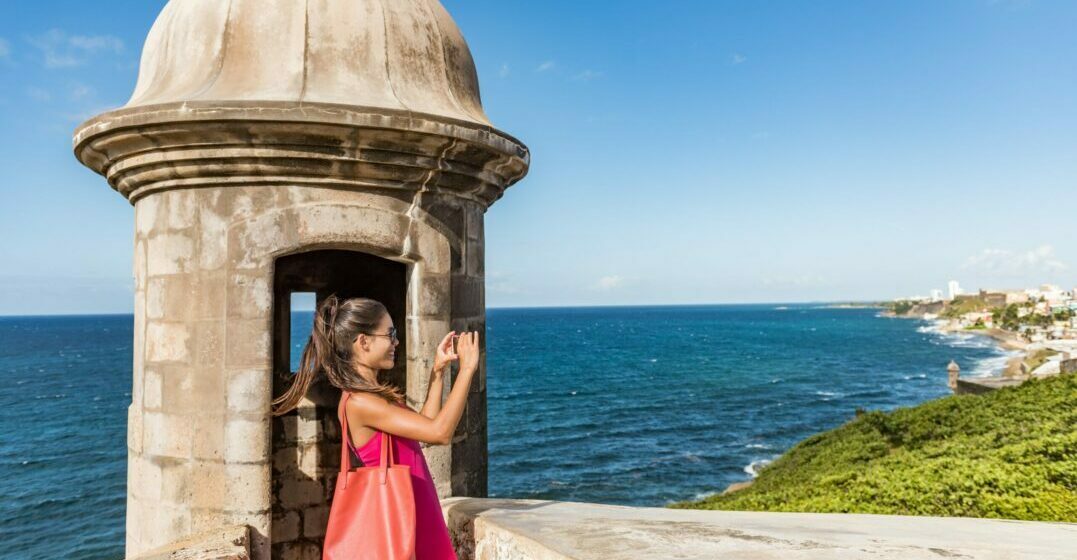Updated on February 12, 2024

How to learn Puerto Rican Spanish

Not all Spanish is the same. We’ve talked about Chilean Spanish and the difference between Spain Spanish and Mexican Spanish before. Another accent to appreciate the diversity of the Spanish language is to learn Puerto Rican Spanish.
This article will teach you about specific pronunciation, words, and phrases unique to the island. Of course, the best way to learn Puerto Rican Spanish is to go there and immerse yourself. We’ll help you hit the ground running for your next trip to Puerto Rico or to speak with your Puerto Rican friends.
Every Spanish-speaking country has a unique vocabulary and accent. Puerto Rican Spanish is different due to its history and culture. Puerto Rican Spanish words draw influence from the three main eras of Puerto Rican history: pre-Columbian indigenous times, Spanish colonial era, and the U.S. colonial period.
The indigenous cultures of Puerto Rico are referred to as Taíno. Influences of different Taíno languages still exist in Puerto Rican Spanish words. For example, Puerto Ricans call themselves Boricua (Puerto Rican) from the local Taíno word for the island, Boriken.
Four hundred years as a Spanish colony not only brought the Spanish language to the Boricuas, but African languages as well. The Spanish brought enslaved people from Africa to Puerto Rico. We can still observe African influence on Puerto Rican Spanish words such as mofongo (a Puerto Rican dish of plantains and pork) and bochinche (gossip). Rich African influence is also evident in Puerto Rican music through samba, cumbia, and marimba.
Finally, there are a number of Puerto Rican Spanish words influenced by English from England and the U.S. such as un bonche (a bunch) and un sipi (a sip).
All of these cultural and historical influences combined over the course of hundreds of years, developing a distinct and beautiful Puerto Rican Spanish.
The rhythm, pronunciation, words, and phrases of Puerto Rican Spanish are distinct. We can focus on how to learn Puerto Rican Spanish with the three elements: pronunciation, words, and phrases.
There are lots of different accents in Spanish. Spanish learners will notice immediately the pronunciation of Puerto Rican Spanish is distinct. Here are the key pronunciation differences to help you learn Puerto Rican Spanish.
Puerto Ricans will replace some middle Rs with an L sound.
Standard: puerto (door)
Puerto Rico: “puelto”
Standard: suerte (luck)
Puerto Rico: “suelte”
Standard: por qué (why)
Puerto Rico: “pol qué”
Puerto Ricans don’t always pronounce the “s” in the middle of words.
Standard: los niños (the kids)
Puerto Rico: “lo niño”
Standard: viste (you saw)
Puerto Rico: “vite”
Puerto Ricans won’t always pronounce the “d” at the end of words.
Standard: verdad (truth)
Puerto Rico: “verda”
Standard: hablado (spoken)
Puerto Rico: “hablao”
Standard: asada (roasted)
Puerto Rico: “asao”
Frequently spoken words may be chopped completely in half.
Standard: para (for, to)
Puerto Rico: “pa”
Example: “pa allá” (over there)
Standard: está (it/he/she is, you are)
Puerto Rico: “tá”
Example: “¿como tá?” (How are you?)
The best way to learn Puerto Rican Spanish without going there is to watch TV. YouTube has good examples of Puerto Ricans speaking, and for general Spanish we recommend these telenovelas.
Slang words and phrases are a big part of how to learn Puerto Rican Spanish. We’ve covered Mexican Spanish slang before. Let’s add some Puerto Rican Spanish words to your dictionary.
Always expand your vocabulary with challenging new words.
Here are a couple of phrases to help you learn Puerto Rican Spanish and sound like a local.
Los trapos sucios se lavan en casa.
Meaning: Don’t air your dirty laundry. Resolve your personal problems privately, at home.
A calzón quitao.
Meaning: without fluff; straight up
Example: Voy a decirlo a calzón quitao. (I’m going to tell it straight)
Darse un patatú.
Meaning: to give a heart attack, sudden illness, or shock
Example: Me dío un patatú. (It gave me a heart attack)
Whether you’re planning a visit or are just curious, learning Puerto Rican Spanish can help your overall Spanish skills. One great way to learn Puerto Rican Spanish is to watch movies and videos to get used to the Puerto Rican accent. Learning Puerto Rican Spanish also depends on your ability to pick up the unique pronunciation, words, and phrases. The more accents you hear, the more comfortable you will be speaking Spanish with anyone no matter what country they come from.